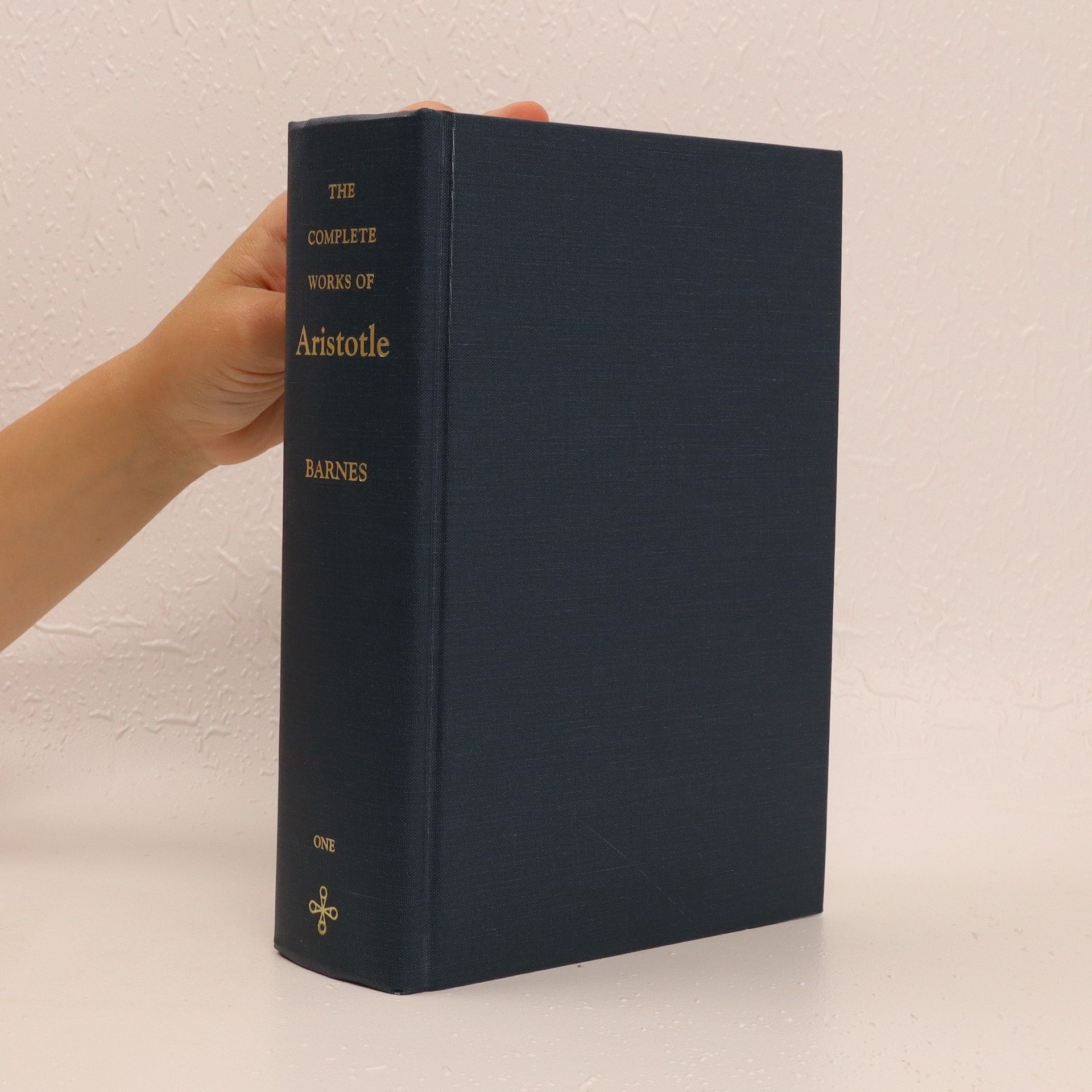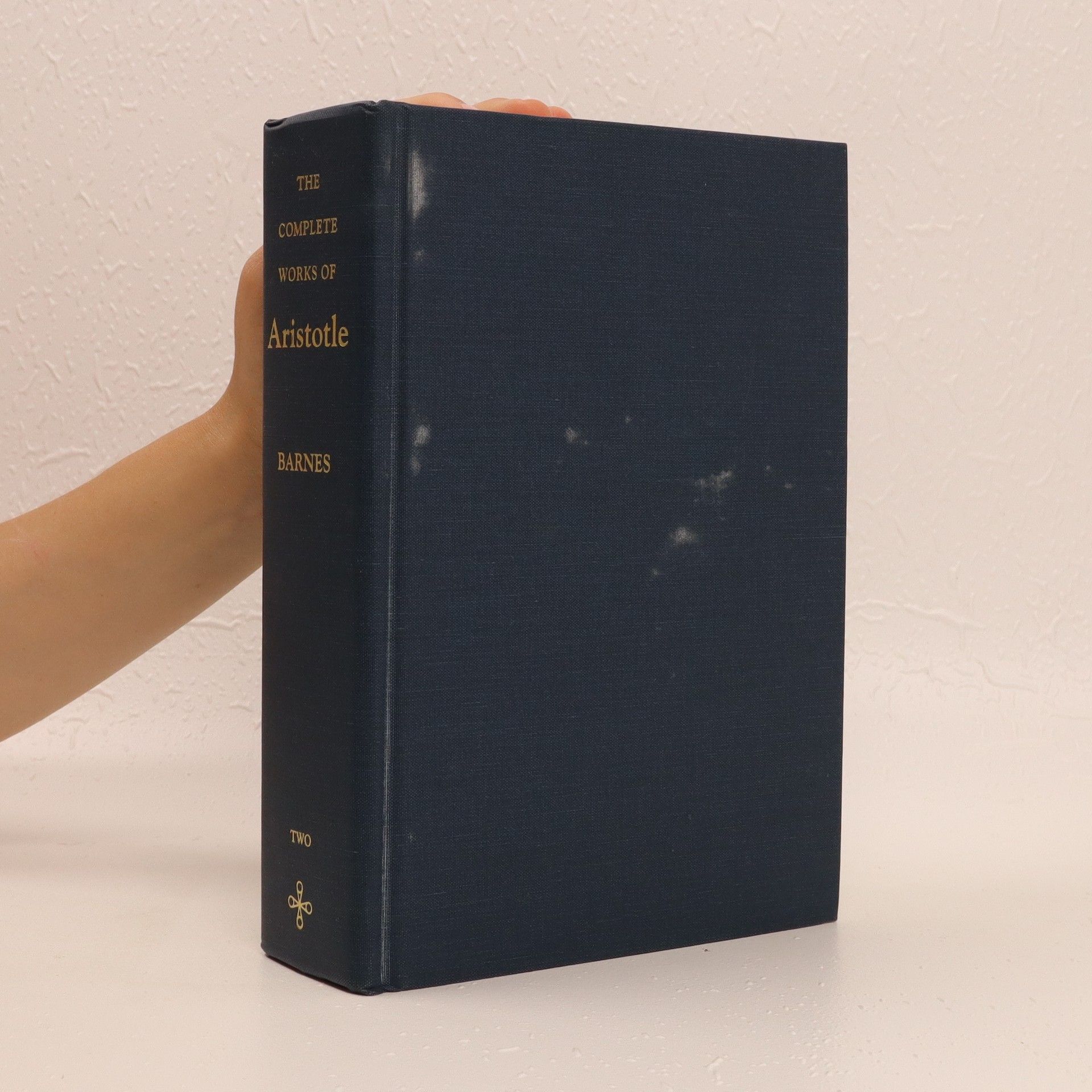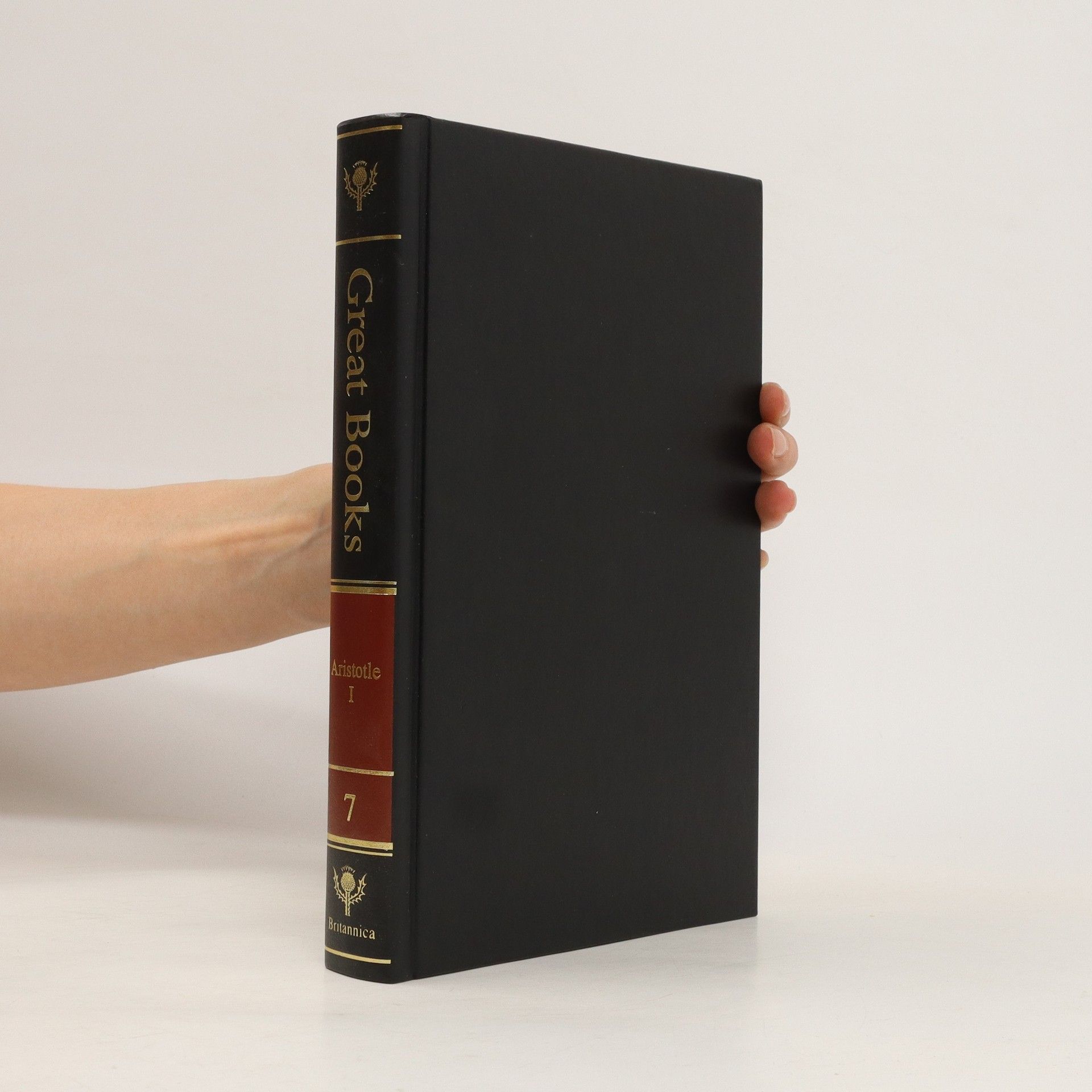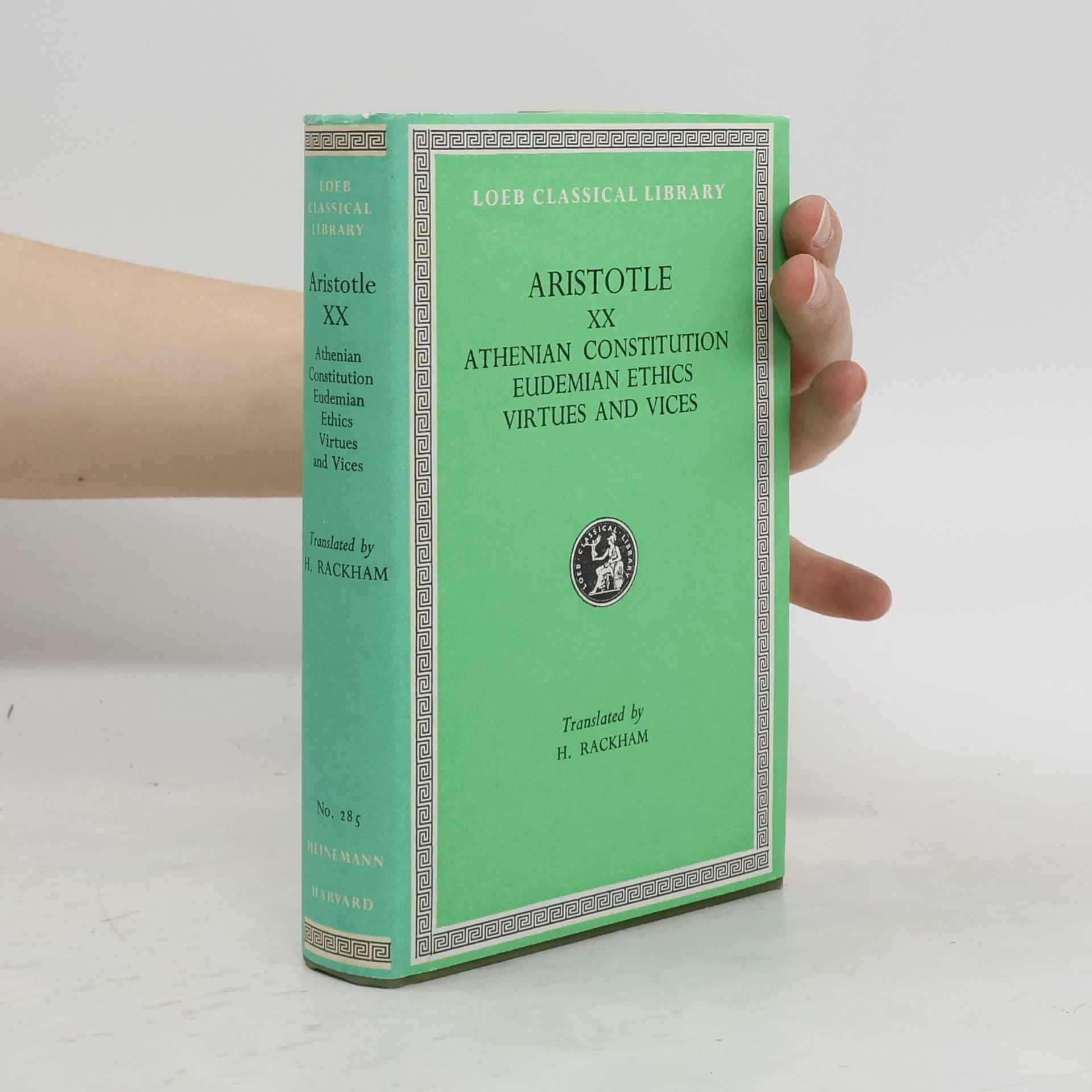Encyclopædia Britannica is proud to offer one of the most acclaimed publishing achievements of the 20th century, Great Books of the Western World. This monumental collection compiles history's greatest written works, from the ancient classics to more recent masterpieces. Great Books of the Western World contains 517 works from 130 of the most renowned minds throughout history. Volumes 1 and 2 comprise the Syntopicon®, a unique guide that enables you to investigate a particular idea and compare the perspectives of different authors. The Syntopicon organizes thirty centuries of thought into 102 Great Ideas, subsequently divided into topics and subtopics to effectively explore the different viewpoints over time. Authoritative, accurate, and complete, this collection represents the essential core of the Western literary canon
Aristotle Books
The author's work delves into the fundamental questions of existence, exploring themes of ethics, metaphysics, and logic. Through rigorous analysis and systematic inquiry, their writings offer a profound framework for understanding the natural world and the human condition. Their philosophical approach emphasizes empirical observation and rational deduction, shaping the course of Western thought. This enduring legacy continues to influence diverse fields, inviting readers to engage with timeless intellectual pursuits.







Collects works by Greek philosopher Aristotle on logic, physics, metaphysics, and the soul
The complete works of Aristotle : Volume 2 (the revised Oxford translation)
- 1246 pages
- 44 hours of reading
The Oxford Translation of Aristotle was originally published in 12 volumes between 1912 & 1954. It is universally recognized as the standard English version of Aristotle. This revised edition contains the substance of the original Translation, slightly emended in light of recent scholarship; three of the original versions have been replaced by new translations; and a new and enlarged selection of Fragments has been added. The aim of the translation remains the same: to make the surviving works of Aristotle readily accessible to English speaking readers.
The Oxford Translation of Aristotle was originally published in 12 volumes between 1912 and 1954. It is universally recognized as the standard English version of Aristotle. This revised edition contains the substance of the original Translation, slightly emended in light of recent scholarship; three of the original versions have been replaced by new translations; and a new and enlarged selection of Fragments has been added. The aim of the translation remains the same: to make the surviving works of Aristotle readily accessible to English speaking readers.
Aristotle's Theory Of Poetry And Fine Art
With A Critical Text And Translation Of The Poetics
- 460 pages
- 17 hours of reading
The book is a facsimile reprint of a scarce antiquarian work, preserving its historical significance despite potential imperfections like marks and notations. It aims to protect and promote cultural literature by providing a high-quality, affordable edition that remains true to the original.
Focusing on practical politics, this translation of Books V and VI of Aristotle's Politics offers clarity and accuracy, enhanced by David Keyt's insightful commentary. The commentary aids in navigating Aristotle's historical references, making it a valuable resource for readers seeking a deeper understanding of this foundational work in political philosophy.
Aristotle: Nicomachean Ethics, Books VIII and IX
- 254 pages
- 9 hours of reading
In books VIII and IX of his work on moral philosophy, Aristotle gives perhaps the most famous of all philosophical discussions of friendship. Michael Pakaluk presents a systematic study of these books, showing how important Aristotle's treatment of friendship is to his ethics as a whole.
Focusing on the classification of entities, this work by Aristotle outlines ten categories that encompass all possible subjects or predicates in propositions. Known for its significance in Aristotelian philosophy, it aims to categorize every object of human understanding without complex structure. The text has inspired extensive discussion and analysis, influencing later scholastic philosophers who explored its implications. This foundational work remains essential for understanding the framework of logic and categorization in philosophical discourse.
Metaphysics: Books B and K 1-2
- 232 pages
- 9 hours of reading
The book features a new translation of Aristotle's Metaphysics, specifically the third book (Beta) and two chapters from the eleventh book (Kappa). It includes an introduction and commentary by Arthur Madigan, which provide detailed insights into the text. Aristotle explores fundamental metaphysical questions and evaluates various philosophical answers, making this work an essential resource for understanding both Aristotle's contributions and the broader context of classical metaphysics.
